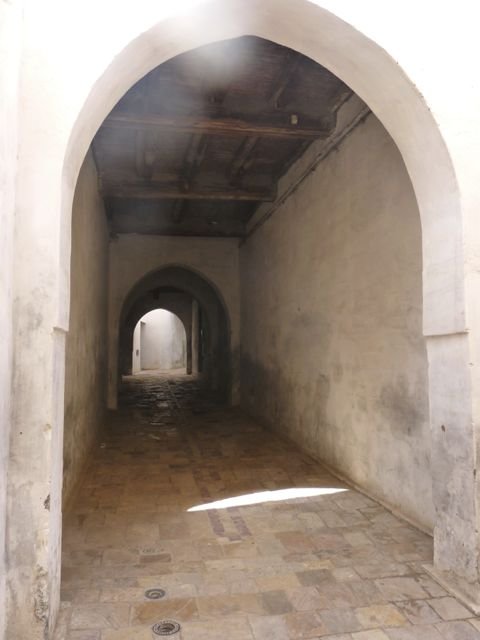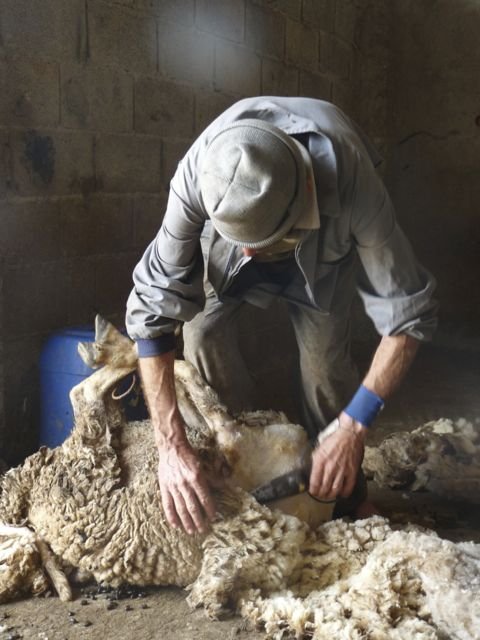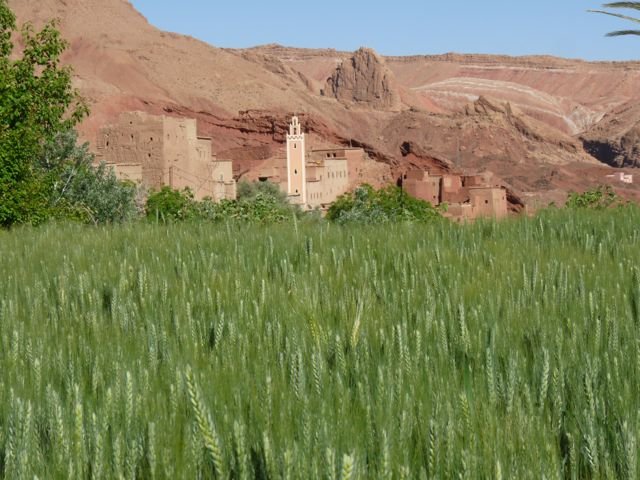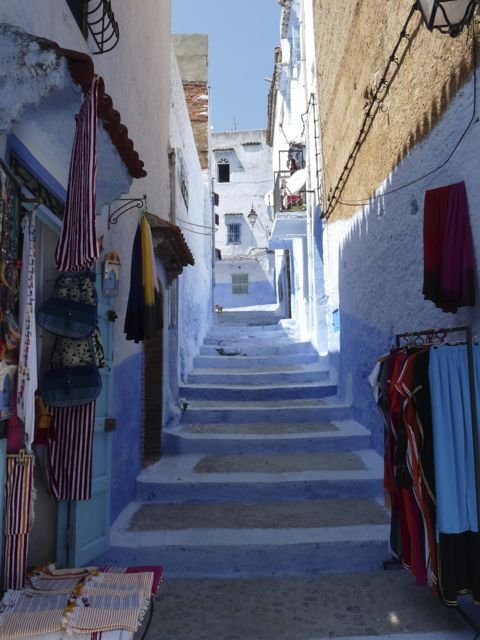Winnipeg and I don't even know how that happened but I like it
In what can only be described as a mad twist of serendipity, life washed me up against the banks of the Assiniboine and Red Rivers, in the Canadian city of Winnipeg, that only a bit over a year ago I only knew through Venetian Snare's charmingly titled song "Winnipeg is a Dogshit Dildo". I am not sure what I was supposed to expect of a city that is likened to a, well, dogshit dildo, but those expectations have been exceeded by far.Think of Winnipeg as the kind of place where–unless you try to hitch your way from East Coast to West Coast along the Trans-Canada Highway–people don't end up without a purpose of doing so (in fact, most Winnipeggers don't end up here at all, they just never left). In that respect, it is the antithesis of New York City and the Pacific Crest Trail, the obvious places where one would go who has no purpose to be anywhere else. In fact, Winnipeg is the antithesis to NYC and the PCT in many ways. These comparisons out of the way, Winnipeg is a very livable, bike-able (in the summer anyway), diverse, culturally rich, and socially complex city that seems to be the exact thing I was craving after two years in a small college town in the hills of Pennsylvania.Part of my purpose to be here is to find out what that purpose is. Superficially Professionally speaking, I am here to pinpoint the nitty-gritty of my dissertation, that will be something around tribal sovereignty, wild rice, and ownership over land and water. Or will it? I am currently using the blank back pages of my proposal to take my fieldnotes. This is about as useful a proposal is once you actually get into the field and get your reality check. Did I mention that I have a lot of fun figuring these things out? I mean it. Driving around Manitoba, Western Ontario and Minnesota, talking to and learning from Ojibwe elders, joining their ceremonies, attending community meetings, and just being (a person) in this beautiful country is a heck more enjoyable than sketching out a dissertation from my office desk half a continent away.But of course, there is always a deeper level to which one could take the question of purpose, and this is where the serendipity comes in and my readiness to pour out the well of my soul in the public parts of the internet drops out. So I leave it at that. Think of this post as a public service announcement, that I live in Winnipeg, Manitoba (Canada) for now. Now, what about visiting me as a purpose for you to come to this city?
Die Subsistenzperspektive - eine Umorientierung zum Guten Leben für alle
Im vergangenen Sommer haben Johanna Biesenbender, Sigrid Gerl Monika Thuswald und ich in transatlantischer Zusammenarbeit einen Artikel zur Subsistenzperspektive (Die Subsistenzperspektive - eine Umorientierung zum Guten Leben für alle) geschrieben, der jetzt endlich bei der Grünen Bildungswerkstatt erschienen ist. Für alle, die es noch nicht wissen: Die Subsistenzperspektive ist ein wesentlicher Schwerpunkt meiner wissenschaftlichen Arbeit und dieser Artikel gibt eine gute Einführung zu dem Thema.
field trip to Kasba Tadla, Morocco
 In May I had the chance to take part in a field study in Kasba Tadla, Morocco which I combined with two weeks of travelling across this beautiful country. Lazy blogger I am, I didn't quite allocated the time to write about it - apart from diary entries and the research report.Alas, it was my first stay south of the Mediterranean sea. And while I leave the description of the beautiful landscapes that change dramatically as you cross the country away from the coast, south through a chain of several mountain ranges (being the Rif mountains and the numerous manifestations of the Atlas) right into the Sahara as well as a portrait of the rich cultural heritage to the travel writing trade (as well to my photography and real-life in-your-face story-telling), I'd like to point out that Morocco is probably a good start if you aim to leave the European bubble without feeling completely lost and helpless. Face it, it is some beautiful country and if you're priviledged enough to be on a vacation and not having to make a living, it's the most relaxing place I can think of. "Très tranquille" as they say. Actually, I'd like to make the point, that even if you HAVE TO make a living, it can be a very relaxing place. I'm not going to romanticize the life of Moroccan peasants and city dwellers alike. Most people we've talked to gave accounts on their hardships, the daunting unemployment and inapt politicians. However, most people in Morocco alloted time for the most basic yet important thing: time spent in community with friends and strangers alike. Being invited by complete strangers for a good "thé à la menthe" made me wonder, what I do with all the time in my life.Our research was titled "Urban primary production of food." Originally, we meant to work on urban subsistence production. However, we began to question the viability of the term "subsistence" in this specific context. Unlike in Europe, the distinction of the two domains of labor for subsistence and labor for profit is highly blurred. It is not too say, the term is completely inapplicable. It would "simply" require a new re-definition which we didn't quite have the time for in this one week field trip. One of the things that screams: "Further Research!"In three of Kasba Tadla's quarters, Hay Dakhla, Hay Berraka and Dar Draouech, we surveyed fruit trees, livestock husbandry and kitchen gardens. Thinking about the effort that grassroots movements all across the industrialized countries invest in order to push forward (small-scale) food production in cities, we were amazed to see, it is all in place in Kasba Tadla. So who is the developed country? Another term that lost its suitability. At the same time, we were shocked to realize, how much these practices are frowned upon by the local government. They dismiss subsistence as something backward of semi-wild, rural peasants that doesn't fit into a modern city. It is cynical: A group of European academics come to Morroco to critize a political position that had been implemented by European academics (and other colonialists) in the first place. How can we know, we're right this time?To sum up, we have shown that primary production of food takes place to a significant amount in Kasba Tadla. While it doesn't allow for self-sufficiency, it contributes to local resilience by reducing the amount of food that needs to be imported, by preserving local knowledge on food production and processing and by strengthening human relationship s1in the community. It is also of outstanding cultural value and, thus, adds to the quality of life of the population of Kasba Tadla.
In May I had the chance to take part in a field study in Kasba Tadla, Morocco which I combined with two weeks of travelling across this beautiful country. Lazy blogger I am, I didn't quite allocated the time to write about it - apart from diary entries and the research report.Alas, it was my first stay south of the Mediterranean sea. And while I leave the description of the beautiful landscapes that change dramatically as you cross the country away from the coast, south through a chain of several mountain ranges (being the Rif mountains and the numerous manifestations of the Atlas) right into the Sahara as well as a portrait of the rich cultural heritage to the travel writing trade (as well to my photography and real-life in-your-face story-telling), I'd like to point out that Morocco is probably a good start if you aim to leave the European bubble without feeling completely lost and helpless. Face it, it is some beautiful country and if you're priviledged enough to be on a vacation and not having to make a living, it's the most relaxing place I can think of. "Très tranquille" as they say. Actually, I'd like to make the point, that even if you HAVE TO make a living, it can be a very relaxing place. I'm not going to romanticize the life of Moroccan peasants and city dwellers alike. Most people we've talked to gave accounts on their hardships, the daunting unemployment and inapt politicians. However, most people in Morocco alloted time for the most basic yet important thing: time spent in community with friends and strangers alike. Being invited by complete strangers for a good "thé à la menthe" made me wonder, what I do with all the time in my life.Our research was titled "Urban primary production of food." Originally, we meant to work on urban subsistence production. However, we began to question the viability of the term "subsistence" in this specific context. Unlike in Europe, the distinction of the two domains of labor for subsistence and labor for profit is highly blurred. It is not too say, the term is completely inapplicable. It would "simply" require a new re-definition which we didn't quite have the time for in this one week field trip. One of the things that screams: "Further Research!"In three of Kasba Tadla's quarters, Hay Dakhla, Hay Berraka and Dar Draouech, we surveyed fruit trees, livestock husbandry and kitchen gardens. Thinking about the effort that grassroots movements all across the industrialized countries invest in order to push forward (small-scale) food production in cities, we were amazed to see, it is all in place in Kasba Tadla. So who is the developed country? Another term that lost its suitability. At the same time, we were shocked to realize, how much these practices are frowned upon by the local government. They dismiss subsistence as something backward of semi-wild, rural peasants that doesn't fit into a modern city. It is cynical: A group of European academics come to Morroco to critize a political position that had been implemented by European academics (and other colonialists) in the first place. How can we know, we're right this time?To sum up, we have shown that primary production of food takes place to a significant amount in Kasba Tadla. While it doesn't allow for self-sufficiency, it contributes to local resilience by reducing the amount of food that needs to be imported, by preserving local knowledge on food production and processing and by strengthening human relationship s1in the community. It is also of outstanding cultural value and, thus, adds to the quality of life of the population of Kasba Tadla.




